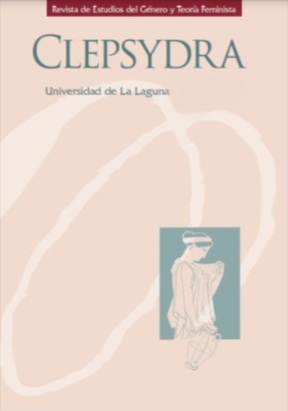The music-hall actress and transcending feminity in the victorian public sphere: a re-orientation of her moral status
Resumen
En el siglo xix, tanto la actriz como la prostituta eran mujeres socialmente estigmatizadas por su profesión poco doméstica, vulgar e inmoral. Mientras críticos como Davis (1991) y Kift (1996) han debatido sobre la generalización excesiva de asociar a la actriz con la prostituta, críticos feministas han interrogado una separación estricta y radical en distintas esferas según género, razonando que las barreras ideológicas y espaciales eran inestables y fluidas. Desde este punto de partida, el presente ensayo aborda un estudio sobre la actriz popular victoriana desde una perspectiva feminista para explorar cómo excede roles femeninos dentro de la cultura del music hall. Nuestro objetivo principal consiste en arrojar luz sobre cómo la actriz del music hall era una mujer trabajadora apreciada por su profesionalidad y talento. Pretendemos demostrar que, lejos de su asociación con la prostituta, la actriz convirtió el music hall en un espacio de realización personal donde podía socavar y transcender los roles femeninos.
Citas
Attridge, Steve. Nationalism, Imperialism and Identity in Late Victorian Culture: Civil and Military Worlds. London: Palgrave Macmillan, 2003.
Bailey, Peter. Popular Culture and Performance in the Victorian City. Cambridge: Cambridge UP, 1998.
Daly, Nicholas. Sensation and Modernity in the 1860s. Cambridge: Cambridge UP, 2009.
Davis, Tracy. C. Actresses as Working Women: Their Social Identity in Victorian Culture. New York and London: Routledge, 1991.
Faulk, Barry. J. Music Hall and Modernity: The Late-Victorian Discovery of Popular Culture. Athens (Ohio): Ohio UP, 2004.
Golby, John and Purdue, Bill. “The Emergence of an Urban Popular Culture”. En John Golby et al. (eds.), Popular Culture: The Historical Development of Popular Culture in Britain 1. Mil-ton Keynes: The Open UP, 1985, pp 12-39.
Jackson, Lee. Palaces of Pleasure: How the Victorians Invented Mass Entertainment. New Haven and London: Yale UP, 2021.
Huggins, Mike. Vice and the Victorians. London and Oxford: Bloomsbury, 2016.
Kent, Christopher. “Image and Reality: The Actress and Society”. En Martha Vicinus (ed.), A Widening Sphere: Changing Roles of Victorian Women, London: Methuen & Co., 1977, pp 94-116.
Kift, Dagmar. The Victorian Music Hall: Class, Culture, Conflict. Traducido por Roy KIFT. Cam-bridge: Cambridge UP, 1996.
Monrós Gaspar, Laura. Cassandra the Fortune-Teller: Prophets, Gipsies and Victorian Burlesque.Bari: Levante Editori, 2011.
Morris, Paul. “Vesta Victoria”. The English Music Hall, en línea, http://www.amaranthdesign.ca/musichall/past/victoria.htm Internet. 10 de enero de 2021.
Nead, Lynda. Myths of Sexuality: Representations of Women in Victorian Britain. Oxford: Blackwell, 1988.
Nead, Lynda. Victorian Babylon: People, Streets and Images in Nineteenth-Century London. New Haven and London: Yale UP, 2000.
Pollock, Griselda. Vision and Difference: Femininity, Feminism and the Histories of Art. London and New York: Routledge, 1988.
Powell, Kerry. Women and the Victorian Theatre. Cambridge: Cambridge UP, 1997.
Vicinus, Marta, (ed). A Widening Sphere: Changing Roles of Victorian Women. London: Methuen & Co, 1977.
Waites, Bernard. “The Music Hall”, en John Golby et al. (eds.), Popular Culture: The Historical Development of Popular Culture in Britain 1. Milton Keynes: The Open UP, 1985, pp 42-76.
Walkowitz, Judith R. City of Dreadful Delight: Narratives of Sexual Danger in Late-Victorian London. Chicago: The University of Chicago Press, 1992.
Weeks, Jeffrey. Sex, Politics and Society: The Regulation of Sexuality since 1800. 1981. New York and London: Longman, 1992.

Esta obra está bajo licencia internacional Creative Commons Reconocimiento-NoComercial-SinObrasDerivadas 4.0.
Los artículos son propiedad de sus respectivos autores y autoras, quienes conceden libremente a la revista el derecho de primera publicación.


